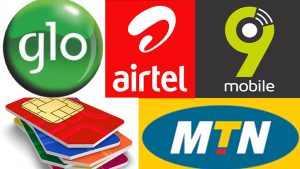
The Association of Licensed Telecommunication Operators of Nigeria (ALTON) has stated that the recent disconnection of SIM cards by mobile operators is unrelated to the planned nationwide protest scheduled for August 1.
The protest, aimed at drawing attention to the country’s economic challenges and demanding improved living conditions, is set to commence next month. However, ALTON has clarified that the disconnections are part of a scheduled exercise to align National Identification Numbers (NINs) with SIM registration records, which is set to conclude on July 31, 2024.
Initially planned for April 15, 2024, the disconnection was postponed to July 31 by the Nigeria Communications Commission (NCC) following requests for extensions due to subscriber challenges. This exercise is mandated by the Federal Government, which introduced SIM card blocks for those not linked to NINs in 2020 in response to increasing terrorist attacks, kidnappings, and banditry during the final months of President Buhari’s administration.
“The fact of the matter is that the harmonisation exercise of the SIM registration database and National Identity database has been ongoing for several months,” the telcos association stated, emphasizing that this process is aimed at enhancing the accuracy and integrity of the National SIM registration database.
ALTON, chaired by Gbenga Adebayo, explained that customers who had their lines blocked recently are those whose service providers found a mismatch between their records on both databases. The association advised such customers to contact their service providers through communicated channels for the resolution of the issue.
ALTON reiterated its commitment to supporting government efforts and safeguarding communication rights, data privacy, and security. The statement comes after human rights lawyer Ebun-Olu Adegboruwa cautioned telecom companies against attempting to stifle the upcoming demonstration against economic hardship by limiting internet access for Nigerians.
Adegboruwa stressed the importance of allowing Nigerians to exercise their democratic rights without obstruction during the protest, warning that any attempts to restrict internet connectivity would be perceived as an infringement on citizens’ rights to free speech and assembly.

